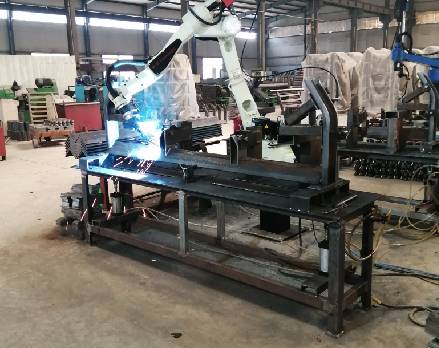 Afrikaans
Afrikaans  Albanian
Albanian  Amharic
Amharic  Arabic
Arabic  Armenian
Armenian  Azerbaijani
Azerbaijani  Basque
Basque  Belarusian
Belarusian  Bengali
Bengali  Bosnian
Bosnian  Bulgarian
Bulgarian  Catalan
Catalan  Cebuano
Cebuano  Corsican
Corsican  Croatian
Croatian  Czech
Czech  Danish
Danish  Dutch
Dutch  English
English  Esperanto
Esperanto  Estonian
Estonian  Finnish
Finnish  French
French  Frisian
Frisian  Galician
Galician  Georgian
Georgian  German
German  Greek
Greek  Gujarati
Gujarati  Haitian Creole
Haitian Creole  hausa
hausa  hawaiian
hawaiian  Hebrew
Hebrew  Hindi
Hindi  Miao
Miao  Hungarian
Hungarian  Icelandic
Icelandic  igbo
igbo  Indonesian
Indonesian  irish
irish  Italian
Italian  Japanese
Japanese  Javanese
Javanese  Kannada
Kannada  kazakh
kazakh  Khmer
Khmer  Rwandese
Rwandese  Korean
Korean  Kurdish
Kurdish  Kyrgyz
Kyrgyz  Lao
Lao  Latin
Latin  Latvian
Latvian  Lithuanian
Lithuanian  Luxembourgish
Luxembourgish  Macedonian
Macedonian  Malgashi
Malgashi  Malay
Malay  Malayalam
Malayalam  Maltese
Maltese  Maori
Maori  Marathi
Marathi  Mongolian
Mongolian  Myanmar
Myanmar  Nepali
Nepali  Norwegian
Norwegian  Norwegian
Norwegian  Occitan
Occitan  Pashto
Pashto  Persian
Persian  Polish
Polish  Portuguese
Portuguese  Punjabi
Punjabi  Romanian
Romanian  Russian
Russian  Samoan
Samoan  Scottish Gaelic
Scottish Gaelic  Serbian
Serbian  Sesotho
Sesotho  Shona
Shona  Sindhi
Sindhi  Sinhala
Sinhala  Slovak
Slovak  Slovenian
Slovenian  Somali
Somali  Spanish
Spanish  Sundanese
Sundanese  Swahili
Swahili  Swedish
Swedish  Tagalog
Tagalog  Tajik
Tajik  Tamil
Tamil  Tatar
Tatar  Telugu
Telugu  Thai
Thai  Turkish
Turkish  Turkmen
Turkmen  Ukrainian
Ukrainian  Urdu
Urdu  Uighur
Uighur  Uzbek
Uzbek  Vietnamese
Vietnamese  Welsh
Welsh  Bantu
Bantu  Yiddish
Yiddish  Yoruba
Yoruba  Zulu
Zulu High-Quality Polyurethane Pulleys for Durable Performance
The Versatile World of Polyurethane Pulleys
In the realm of industrial machinery and equipment, polyurethane pulleys have emerged as a crucial component, offering a blend of strength, durability, and versatility. These pulleys, made from a synthetic polymer known for its elasticity and resistance to wear and tear, have revolutionized various applications across manufacturing and material handling sectors.
Polyurethane is a material known for its exceptional properties. It combines the characteristics of rubber with the durability of plastic, making it ideal for applications where toughness is critical. When used in pulleys, polyurethane provides a lightweight solution that enhances performance while reducing the overall weight of the machinery. This reduction in weight not only improves the efficiency of the equipment but also contributes to lower energy consumption, making it an eco-friendly choice.
One of the most significant advantages of polyurethane pulleys is their resistance to abrasion and impact. In industries where heavy loads are common, such as mining, construction, and logistics, pulleys often face extreme operating conditions. Polyurethane’s inherent strength allows these pulleys to withstand the stress of heavy loads and constant friction without degrading. Compared to traditional materials like metal or rubber, polyurethane pulleys exhibit a longer lifespan, resulting in lower replacement costs and reduced downtime in industrial operations.
In addition to durability, polyurethane pulleys offer excellent shock absorption properties
. When equipment is subject to sudden movements or vibrations, these pulleys can effectively dampen the impact, protecting both the pulley and the machinery it operates with. This shock-absorbing capability is particularly beneficial in conveyor systems, where unexpected jolts can lead to misalignment and system failures.polyurethane pulley

Furthermore, polyurethane pulleys are highly customizable. Manufacturers can tailor the design, size, and hardness of the pulleys to meet specific requirements for various applications. This adaptability ensures that businesses can find the perfect match for their operational needs, whether in the food processing industry, packaging, or automotive sectors.
Another important consideration is the environment. Polyurethane is a material that can be formulated to be more eco-friendly than some alternative options. Many manufacturers are now producing biodegradable or recyclable polyurethane pulleys, which align with the growing trends of sustainability and corporate responsibility. As industries become more aware of their environmental impact, the demand for such materials is likely to increase.
Moreover, the installation and maintenance of polyurethane pulleys can be more straightforward compared to traditional bearings. Their ability to operate without regular lubrication decreases maintenance requirements, saving both time and resources. For companies looking to streamline their operations, this is a significant advantage.
In conclusion, polyurethane pulleys represent a significant advancement in engineering materials. Their combination of strength, flexibility, customization, and eco-friendliness makes them an ideal choice for a broad range of applications in various industries. As technology continues to evolve, it’s likely that the use of polyurethane in pulley systems will only expand, paving the way for even more innovative applications in the future. Embracing these modern materials can lead to enhanced operational efficiency, greater sustainability, and ultimately, a competitive edge in the marketplace.
-
Revolutionizing Conveyor Reliability with Advanced Rubber Lagging PulleysNewsJul.22,2025
-
Powering Precision and Durability with Expert Manufacturers of Conveyor ComponentsNewsJul.22,2025
-
Optimizing Conveyor Systems with Advanced Conveyor AccessoriesNewsJul.22,2025
-
Maximize Conveyor Efficiency with Quality Conveyor Idler PulleysNewsJul.22,2025
-
Future-Proof Your Conveyor System with High-Performance Polyurethane RollerNewsJul.22,2025
-
Driving Efficiency Forward with Quality Idlers and RollersNewsJul.22,2025





























